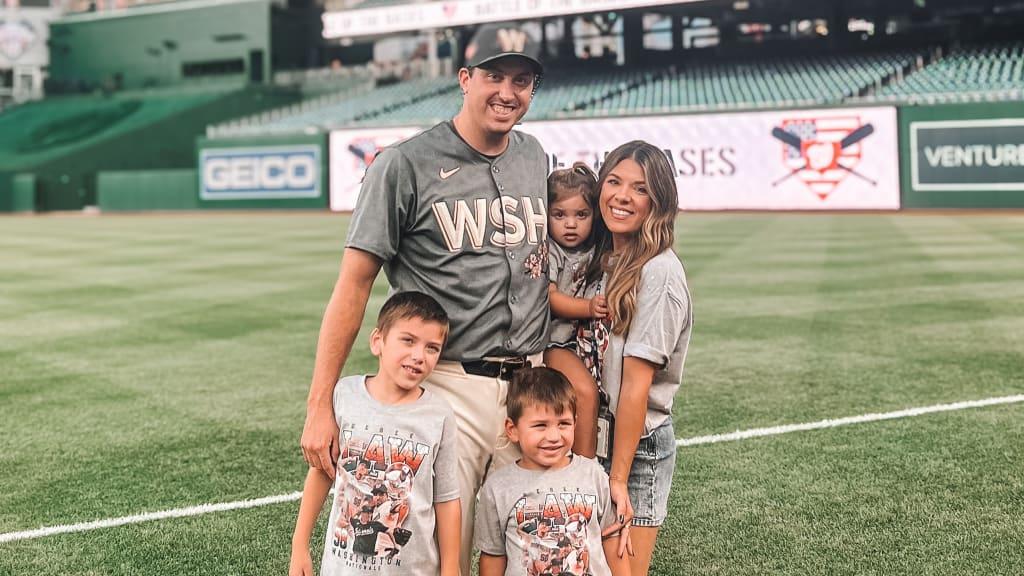Chris Law, the New York Mets infielder, is finding an unexpected source of strength and motivation during his injury rehabilitation: his children. As Law works diligently to recover from a recent setback, his kids are playing a crucial role in helping him stay focused and present throughout the often grueling process. This personal approach not only aids his physical recovery but also provides emotional support, highlighting the human side of professional athletes’ journeys beyond the spotlight.
Law’s Family Support Plays Critical Role in Navigating Injury Recovery
Throughout the demanding phases of injury rehabilitation, Law credits his family as an indispensable source of strength and motivation. His children, in particular, offer a much-needed anchor, helping him focus on the present rather than dwelling on setbacks. The daily interactions, from playful moments to shared milestones, have transformed his recovery journey into one marked by hope and determination. By witnessing their resilience and joy, Law finds renewed energy to tackle grueling therapy sessions with a positive mindset.
Key ways Law’s family support impacts his rehab:
- Encouraging consistency in therapy routines through shared accountability.
- Providing emotional grounding during moments of frustration and pain.
- Fostering mental wellness via playful distractions and bonding activities.
- Serving as a daily reminder of purpose beyond the physical challenges.
| Support Aspect | Impact on Rehab |
|---|---|
| Emotional Encouragement | Boosts morale and mindset |
| Routine Accountability | Enhances therapy adherence |
| Interactive Play | Reduces stress and anxiety |
| Future Focus | Strengthens motivation |
Balancing Parenthood and Professional Athletics Offers Emotional Stability
For Law, the often grueling process of injury rehabilitation transcends physical recovery; it also serves as a critical period for emotional recalibration. His children provide an essential grounding force, helping him maintain a positive mindset amid the challenges of sidelined training. Engaging in daily routines with his kids – from playing catch in the backyard to bedtime stories – creates moments of joy that counterbalance the stress of rehab. These interactions reinforce a sense of normalcy and purpose beyond the diamond, reminding him that identity and fulfillment extend well past athletic achievements.
Balancing fatherhood with the demands of professional sports introduces a structured rhythm to Law’s days, fostering mental resilience. The responsibilities at home encourage focus on the present, reducing anxiety about future performance and recovery timelines. This stability is reflected in his meticulous rehab schedule, which prioritizes both physical therapy and quality family time. Below is a snapshot of how Law integrates parenthood and rehabilitation into his daily agenda:
| Time | Activity | Purpose |
|---|---|---|
| 7:00 AM | Morning rehab exercises | Strength building |
| 9:00 AM | Breakfast with kids | Family bonding |
| 10:00 AM | Physical therapy session | Injury recovery |
| 12:00 PM | Outdoor playtime | Mental refreshment |
| 7:30 PM | Storytime and bedtime routine | Emotional connection |
- Emotional anchoring: Parenting responsibilities help keep Law focused on the present moment.
- Stress relief: Quality family time offers natural, mood-lifting breaks amid rehab.
- Balanced priorities: Harmonizing rehab and home life fuels both physical and psychological healing.
Experts Recommend Strong Personal Networks to Enhance Rehabilitation Outcomes
Rehabilitation experts emphasize that the role of a robust personal network cannot be overstated when it comes to navigating the challenging path back from injury. For professional athletes like Trevor Law, the support from loved ones-especially his children-provides more than emotional comfort; it acts as a powerful motivator that keeps players anchored in the present moment and focused on each small victory. Such networks help combat the isolation that often accompanies long recovery periods, fostering resilience and enhancing mental well-being.
Key elements of effective support networks during rehab include:
- Consistent encouragement: Regular check-ins and positive reinforcement boost morale.
- Active engagement: Family members participating in rehab activities create a sense of shared purpose.
- Distraction and normalcy: Daily interactions that divert focus from pain and setbacks.
- Goal reinforcement: Loved ones help keep recovery objectives visible and attainable.
| Support Type | Impact on Rehab |
|---|---|
| Emotional Support | Reduces anxiety, improves mood |
| Physical Assistance | Enhances rehab adherence |
| Accountability | Keeps progress on track |
| Motivational Presence | Strengthens mental focus |
In Retrospect
As Trevor Law continues his rehabilitation journey, it is clear that the support of his children plays a pivotal role in keeping him grounded and focused. Their presence not only brings moments of joy amid the challenges but also serves as a powerful reminder of the life waiting for him beyond the recovery process. For Law and his family, these moments underscore the resilience and determination required to overcome injury setbacks, both on and off the field.


